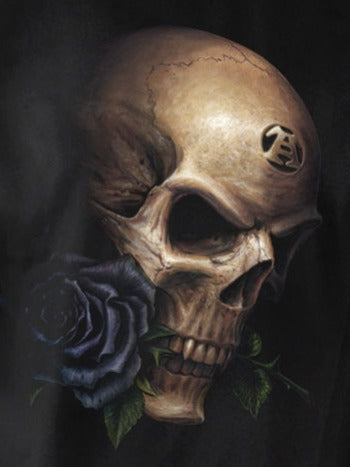Just add it to the cart and the Discount will be automatically deducted, final price only £14.04.

The Alchemist and his place in Gothic Folklore
The Alchemist: Gothic Folklore's Silent Philosopher
Hidden in the shadowed tapestry of gothic folklore is the chilling tale of The Alchemist -a figure who is neither ghost nor man, but something in between. Cloaked in the decay of centuries, this enigmatic being drifts through the ruins of forgotten monasteries and shattered laboratories, always silent, always bearing a single rose gently clasped between its teeth.
Long before he became legend, he was known as a philosopher—a man of profound intellect and impossible ambition. It is said he devoted his life not merely to turning base metals into gold, but to answering the questions that gnawed at the soul: What is the true nature of existence? Can the soul transcend death? Is there such a thing as eternal wisdom without eternal suffering?
His alchemical studies were not limited to physical transmutation but aimed at the metaphysical—seeking the union of mind, matter, and spirit. In his search for the "prima materia", the original essence of all creation, he stumbled upon something far more powerful and far more dangerous: a rose said to be grown from the soil of memory and loss. This rose, legend says, blooms only once—fed not by water but by the philosopher’s own words, the truths he uncovered in the silence of his final ritual.
But he never spoke again.
Whether by curse or design, the rose silenced him forever. Some say it was a punishment, others say it was a sacrifice. He had found the answers he sought—but to speak them aloud would unravel the delicate threads of reality. So he walks, century after century, with his rose intact and his silence unbroken.
Villagers tell stories of his appearance on storm-tossed nights, when the air is thick with ozone and dread. If you meet his gaze, it’s said, you’ll be filled with unbearable longing—for lost love, forgotten knowledge, or a peace that never was. Within days, you’ll be overcome by silence, your voice fading like fog at dawn.
In the gothic tradition, The Alchemist stands as a tragic philosopher—one who learned that truth, in its purest form, may be too sacred, too dangerous, to ever be spoken.

